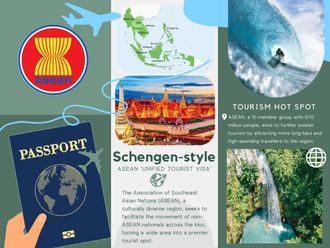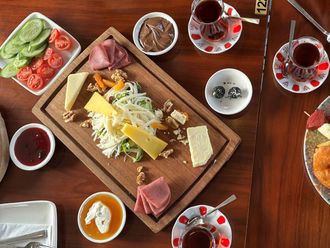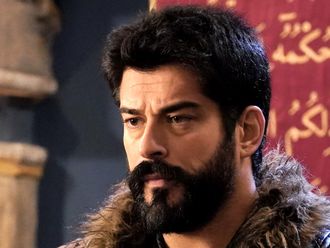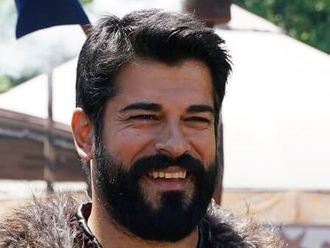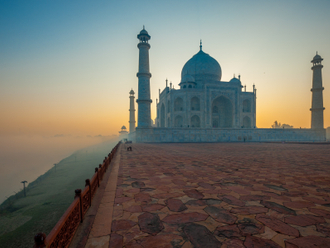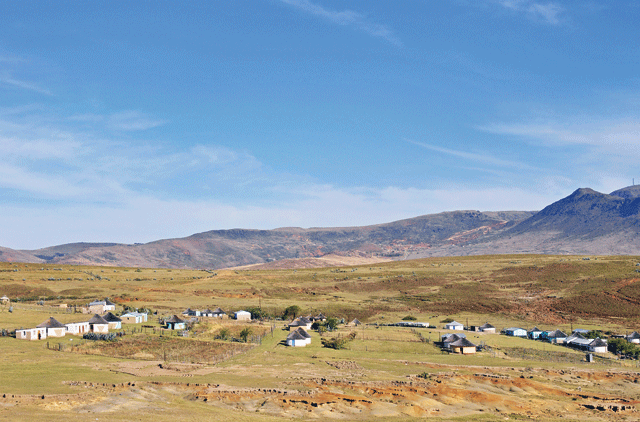
The man who became a legend recalled the carefree days of his youth, gathering wild honey and fruits and swimming in clear, cold streams. "From these days I date my love of the veld, of open spaces, of the simple beauties of nature, the clean line of the horizon." Thus wrote Nelson Mandela in his autobiography, Long Walk to Freedom, of his childhood in Transkei, where Xhosa tribes have lived, hunted and fished among hills between the Drakensberg Mountains and the Indian Ocean for 1,000 years.
Not much has changed. Some hilltop villages now have electricity, most have running water and a few people have cars that jolt along dusty, unpaved roads. There are no big resorts or shopping malls and the rare paved roads are obstacle courses of people, potholes and livestock.
So when my wife proposed a five-day trek along the coast I was less than enthusiastic. "We can stay in Xhosa villages," she said, "in traditional rondavels and eat local food."
Fears put to rest
I didn't fancy lugging a rucksack for upwards of eight miles a day over hills and who knew what dinner would be like? South Africa had one of the world's highest rates of violent crime, right? Well, yes, she said, but we'll have guides, and anyway these people are farmers, not muggers. We'll be fine.
One thing about wandering off the beaten track is the characters you meet. Thea Lombard is a 59-year-old Afrikaner woman who sold an award-winning guesthouse in the Western Cape to buy a dilapidated fruit farm off a dirt track near the end of a road in the middle of nowhere. The last bit is not strictly true. The farm is actually in the hills about six miles from Port St Johns, our departure point, overlooking a bend in the Umzimvubu River, the third-biggest in South Africa. Thea has transformed these rooms with a view into a funky lodge and culinary haven in harmony with the subtropical forest around it. Just ask the sunbirds, which turn up for breakfast.
Character No 2 turns up next morning. Sebenzile "Jimmy" Selani is a local boy who won a national tourist guide award and set up his hiking and canoeing business. He is our guide and interpreter on the first day's hike and he fills us in on life in post-apartheid South Africa.
Voices in the wind
"Freedom is not for our generation. It is for our children and their children," Jimmy says.
The wind catches his words and carries them over sand dunes above a deserted beach pounded by huge Atlantic rollers. This is the domain of humpback whales and fish eagles, and thousands of dolphins feeding on an annual migration of sardines.
Jimmy volunteers to carry my pack and mentions that I can probably hire a porter in the next village for the remainder of the hike. It's a good way for the locals to earn a bit of extra cash, he says.
Our porter's name is John Mbuzeni, a truck mechanic who is spending the holidays in his home village of Madakeni. We are introduced to his mother, Sophelina, who lives in her compound of thatched huts with 19 children and grandchildren, and a menagerie of dogs, goats, chickens and cows. By her front door is a vegetable patch where she grows enough maize, pumpkins, spinach, bananas, guavas and pawpaw to feed them all.
Our beds in Madakeni are mattresses on the floor of a spotlessly clean rondavel, a traditional circular dwelling of mud and straw that is airy and cool, with a window looking out to sea. Next door is a simple hut with toilet and shower, and a kitchen where a young woman prepares us a fine meal of chicken with rice.
It may feel like the end of the world but it isn't. Every village has a spaza, a store selling basic provisions, including cold beverages. We sit by our door, slaking our thirst and watching the village and the Sun winding down for the day. As night falls, there is a comforting buzz of humanity, the refrain of shared lives.
In the grip of wanderlust
For the next four days we wander over hill and dale, following the coast over rocky headlands and along deserted beaches save for cows lolling in the warm sand. There are broad river estuaries to be crossed, and ferrymen waiting with rickety old wooden rowing boats. We take our turn, with local women carrying umbrellas and sometimes children swim beside us for the fun of it.
The landscapes conjure illusions. Look one way and there is a vision of Brazilian rainforest; look the other and it could be the Yorkshire Dales. Then from a ridge there is a panorama of hills dotted with villages like an illustration of Africa in a children's storybook. This is Pondoland, home of the Amapondo people, neighbours to the Thembu tribe of Mandela, where traditional lifestyles are still valued.
Sights and sounds
The next day we pass women walking to the sea to collect mussels and watch boys diving for crayfish. Then we hear sharp whistles and see a man with a pack of dogs hunting springbok. For lunch, our guide cooks freshly caught crayfish and sea bream over a wood fire on the beach.
Soon we enter the village where we are to spend the night. The highlight is a song-and-dance performance by girls from the village school, choreographed by an older girl blowing a whistle and accompanied by another banging sticks on a plastic can. The foot-stomping, high-kicking routines have passed down through generations.
Electricity has not reached this village, so we go to bed by candlelight, lulled by the sea and a low murmur of voices. Our alarm call is crowing roosters, a lamb bleating and an inquisitive monkey scratching at the door. Other memories linger: of tame zebras grazing in a nature reserve, the best spicy fish stew I've ever tasted, cooked on an open fire and barefoot children running on the veld, free as the wind. Mandela would have loved it.


